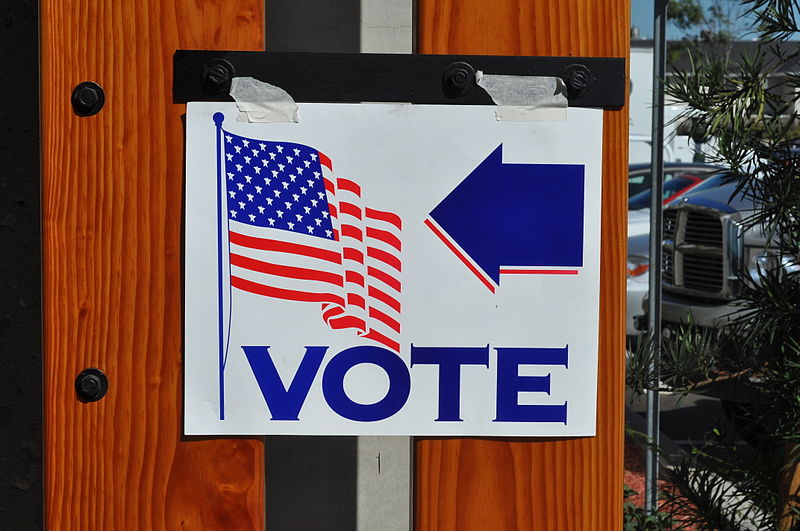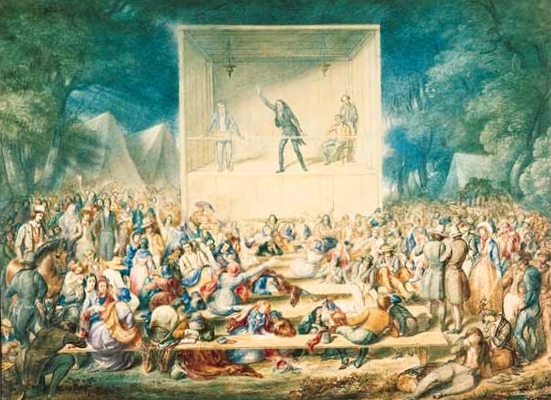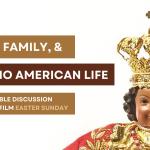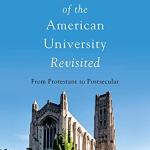Is there such a thing as an American evangelical political theology?
Some pundits are convinced that evangelicals (or, at least, the majority of evangelicals who are white) don’t care about theological principles at all, but merely vote for their self-interest. In yesterday’s Washington Post, columnist Jennifer Rubin wrote, “White evangelicals have never had a robust political ethic based on rigorously developed principles but rather an ends-justify-the-means approach to politics that starts with support for outcomes that are perceived to serve their interests and then marshals theology as backfill.”

This cynical assessment is probably true of a number of evangelical voters this year, but I don’t think that it applies to all white evangelicals throughout American history. If we look carefully at the long history of evangelical political activism, we’ll be able to discern some widely held evangelical political tenets that give us a clue as to how evangelical theology has historically been applied to politics in the United States. In other words, there is an American evangelical political theology that can be discovered through historical investigation.
Because the meaning of “evangelical” has shifted a bit over time and has been applied to groups with widely differing political perspectives, it may seem a bit odd to search for a single cohesive evangelical theology of politics. Nevertheless, if one looks at how the various groups identifying with the four tenets of David Bebbington’s quadrilateral have engaged with American politics over the past two hundred years, one can find some common patterns of behavior that reflect evangelical beliefs. The evangelical political theology that emerges from this historical investigation may surprise people who think of evangelical politics only in its contemporary Christian nationalist manifestation and imagine that evangelical voters are theocrats who want to merge church and state. In reality, traditional evangelical political theology is a lot more complicated than that.
So, what major features of historic American evangelical political theology seem apparent when looking at a two-century-long sweep of American evangelical political behavior?
- Church-state separation: Because of their denominational theory of the church, American evangelicals have usually been opponents of state efforts to aid particular churches, but have favored state support for a broadly Protestant-based morality.
Throughout the eighteenth, nineteenth, and twentieth centuries, the vast majority of American evangelical Protestants consistently held to a denominational theory of the church that held that Christ’s church could not be identified with a single religious organization; true Christians could be found in multiple denominations. This meant that the state should not play favorites when dealing with churches; people’s choice of church should be completely voluntary, with churches free to disseminate their own messages in an open religious marketplace. In the late eighteenth and early nineteenth centuries, Baptists in particular fought against state aid to established churches.
When it comes to the issue of church establishment, evangelicals have historically been just as strong advocates of church-state separation as any secular American has been. But the type of secularity that evangelicals have historically advocated has not been completely neutral in regard to Christianity. While believing that the state should not aid any particular church or denomination, the majority of evangelical Protestants during the past 250 years have believed that the government should encourage a broadly Protestant morality.
They often disagreed among themselves as to what exactly that state-enforced Protestant morality should include. Should it, for instance, include Sabbatarian legislation, as many Presbyterians and other Reformed Protestants of the early 19th century believed – but which some Baptists did not agree with? Should it include a prohibition on alcohol, as most evangelical Protestants of the early 20th century thought – but which the conservative Presbyterian J. Gresham Machen opposed? Should it include antislavery legislation or civil rights policies, which some evangelicals of the 19th and 20th centuries favored but that many others opposed?
Despite these disagreements, the vast majority of evangelical Protestant groups have believed that a broadly Protestant (or Christian) morality that accords with biblical teachings does have a place in American law. Most evangelical Protestants have not been theonomists (that is, people who believe in a restoration of biblical law under a theocratic state). They have wanted to preserve the line of church-state separation and respect religious pluralism. But they have not been secular libertarians either. They have generally believed that their Christian faith does include moral imperatives that should guide their policy choices in the political realm, whether that means helping the poor, protecting the environment, legislating against abortion, or, in past eras, prohibiting the sale and manufacture of alcohol or outlawing dueling.
- Suspicion of political solutions: Because of their belief in the power of Spirit-induced conversion, American evangelicals have usually looked to revival rather than to politics to produce lasting social change.
Despite the popular view in some parts of the media that “evangelical” has become synonymous with a particular political orientation, most Americans of the last 250 years who have subscribed to the tenets of Bebbington’s quadrilateral have not looked primarily to politics for the solution to social problems. Instead, evangelical theology is predicated on the idea that individual and social redemption is the work of Christ and that regeneration and renewal are the work of the Holy Spirit. Evangelicals have long believed that Christians can be the “hands and feet of Jesus” in helping others and carrying the gospel to the world, but despite their periodic interventions in politics, they have tended in general to be more skeptical than liberal Protestants about the possibility of politics creating lasting solutions.

As Mark Noll notes in his recently published America’s Book, Methodists in the early republic believed in nonpolitical solutions to social problems. They preached against slaveholding, intemperance, and other evils, but believed that religion rather than politics offered the solution to individual and social transformation in these areas. Even when evangelicals have entered the political realm, they are often quick to acknowledge the limits of politics to create the type of lasting solutions that they desire. Christianity Today’s social analyses frequently focus on private charitable and church efforts and rarely mention policy solutions – which is a real contrast with the liberal Protestant journal Christian Century, which comments on policy debates far more frequently.
Evangelicals certainly have been drawn into politics when they think that the cause is warranted, but their general inclination, both in the early nineteenth century and in the early twenty-first, has been to believe that social change comes first through individual conversion and secondly through private institutions that God has ordained (such as church, family, and private ministries), with state policy solutions being a distant third choice. Many white evangelicals today make an exception for abortion, because they believe that this is a matter of murder that the state has a duty to regulate, but on most issues of social justice, the majority of evangelicals, both in the past and the present, have tended to look for solutions outside of politics.
The state, they have generally believed, should create an environment in which the church, the family, and individuals can do their work of social transformation, but the state should not do this directly. Of course, not every evangelical has held this view, but it has been the prevailing view among evangelicals in nearly every era of American history. When arguing for state policy solutions to a particular issue, evangelicals have tended to view those issues as exceptions to the rule rather than the norm.
Evangelicals’ strong faith in Spirit-induced personal regeneration rather than policy as the solution to social ills resulted in the mid-1970s in many white evangelicals’ stated desire to elect any born-again person to political office, regardless of party or platform. At the end of the 1970s, many evangelicals abandoned this view and decided that voting for a candidate who was right on the issues was more important than voting for a candidate who was born again, but nevertheless, because of their strong faith in the power of conversion, some are reluctant to believe that a candidate who is wrong on the issues could be a true Christian or that their preferred candidate who is right on the issues might not be a regenerate Christian at all. This might explain why some conservative white evangelicals insisted that Bill Clinton, despite his Southern Baptist faith and love of church, was not a Christian at all, or why James Dobson claimed that Donald Trump was a “baby Christian” despite some evidence to the contrary.
- Politics as a moral campaign: Because of their belief in the reality of sin on a cosmic scale, American evangelicals who have been politically active have usually seen politics as a moral battle.
With their belief in original sin, a real Satan, a literal hell, and a genuine atonement that was accomplished on Calvary, evangelical Protestants, of all people, have tended to see the world in terms of a dichotomy between cosmic evil and divinely created good. Perhaps it is not surprising, therefore, that when they have entered politics, they have usually viewed it as a venue to fight evil and battle for righteousness.

Because of this trait, critics of evangelicalism have accused evangelicals of inappropriately blurring the boundaries of church and state or of using politics to force their religion on others. But most evangelicals do not think that this is what they’re doing. Instead, they have strong moral convictions that are matters of justice, in their view. Most often, they have argued that the evils that should be fought in the public square are attacks on the family or human life. This was the motivation behind the Protestant campaign against alcohol in the 19th and early 20th centuries, and it was the reason for grassroots campaigns against pornography in the mid-to-late 20th century. Likewise, evangelicals justified campaigns against LGBTQ rights claims in general and same-sex marriage in particular on the grounds that they were protecting the family – which they believed the state had a duty to do.
Religiously inspired moral convictions fueled civil rights campaigns and other causes of social justice in the 20th century. They inspired campaigns against child sex trafficking. And they led President Jimmy Carter (a Southern Baptist who, along with Billy Graham, was one of the two most famous American evangelicals of the late 1970s) to make international human rights a central foreign policy concern.
But evangelicals’ tendency to see political issues as moral causes has tended to make them less inclined to compromise and less supportive of pluralism than liberal Protestants and other non-evangelicals have been. A belief in the rightness of their cause has sometimes led them to adopt the view that any means are justified in securing the results that they seek. And it has led many evangelicals to experience deep disappointment when they fail to secure the cultural change that they seek through politics.
- The Kingdom of God: Because of their belief in eschatology and the kingdom of God, evangelicals have usually seen their political efforts in the United States as in some way connected to a different political realm – the realm of God’s kingdom.
Perhaps for non-evangelicals, the evangelical view that earthly political debates are never far removed from eschatology or a spiritual kingdom of God is confusing and deeply disconcerting. But nearly every evangelical in politics has held this view, though the way in which evangelicals have applied it has varied widely.
In the Second Great Awakening of the 19th century, evangelicals who were postmillennialists (that is, they believed that Jesus would come only after a long period of human flourishing known as the millennium) embraced the temperance and antislavery causes with the conviction that their social reform efforts would usher in the societal betterment that would eventually pave the way for Jesus’s return and heavenly reign. In the early 20th century, premillennialist evangelicals who expected not a period of social betterment but instead an imminent rapture and tribulation before the coming of the millennial kingdom warned that President Franklin Roosevelt’s New Deal might be opening the door to the Antichrist. And today, many evangelicals who subscribe to a theology of the contemporary coexistence of Christ’s spiritual kingdom and earthly human kingdoms worry about how to deal with the tension between these two realms – a tension that Charles Colson expressed in his book title Kingdoms in Conflict.
Evangelicals have varied widely in how they have balanced these tensions. In the late 19th century, some evangelicals associated with the revivalist Dwight L. Moody seemed to give up on politics altogether and focus solely on saving people for God’s spiritual kingdom. Today some strands of Christian nationalism seem to conflate God’s kingdom with an earthly political realm in ways that make it difficult to recognize the differences between the two. But at their best, evangelicals who see themselves as citizens of two kingdoms have avoided putting too much stake in earthly political results – and yet, at the same time, have remained convinced that their political efforts really mattered, because they were not merely temporary campaigns to address an earthly situation that would soon be forgotten but were instead a manifestation of some aspect of the principles of justice and social harmony that would be more fully realized in the ultimate unveiling of God’s kingdom. In other words, politics could be a venue to reveal something about God’s reign on earth – even in a context in which others might not believe that reign even exists.
If I am correct about these principles of evangelical political theology, we can say that traditional evangelical political theology is not theocratic, and it is supportive of American democracy. But there are also unresolved tensions within it, such as the tension between the principle of seeing politics as a venue for moral causes that have cosmic implications and can never be compromised and the principle of being suspicious of political solutions altogether. There is a tension between the ideals of the kingdom of God and the practical realities of a carnal political realm.
Because evangelicals struggle with these tensions, they disagree among themselves about how exactly they should apply their beliefs to any given political situation. Among evangelicals who oppose abortion, for instance, some belief that legal prohibitions must be secured at all costs. Others are skeptical about the possibility of a legal solution to this problem. Among evangelicals who believe in the importance of preserving Christian moral influence in the nation, some have embraced Christian nationalism and the belief that politicians must overtly acknowledge the Christian origins of the United States, and others have suggested that this conflation of the nation with God’s kingdom amounts to idolatry and must be shunned. Among evangelicals who have debated whether a Christian should vote for a person with the character flaws and policy proposals of Donald Trump, some have argued that if his platform was righteous (while the opposing party’s platform was evil), Christians had a moral duty to vote for the “pro-life” candidate, while others cited the older evangelical concern about godly character, and suggested that a vote for Trump was an inappropriate act of political cynicism rather than an exercise of faith.
A study of the history of evangelical political theology can give us the tools to understand these tensions, but it may not be able to provide definitive answers about which side genuinely represents traditional evangelicalism. But it can help us to grapple with these issues ourselves in the light of historic principles of an evangelical theological tradition – a tradition that can help us think through political debates in ways that transcend the crass self-interest that some pundits have wrongly assumed have always characterized the political choices of white evangelicals.













